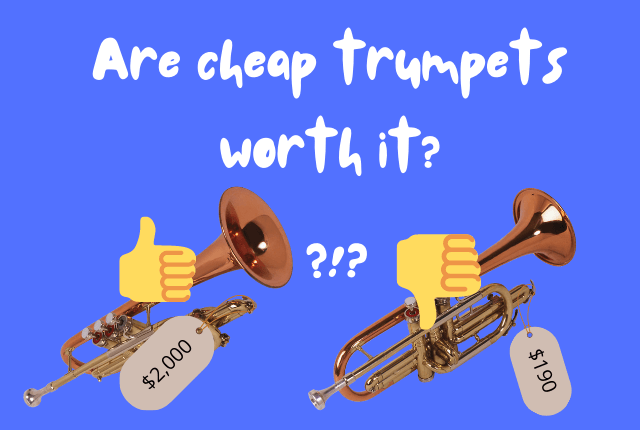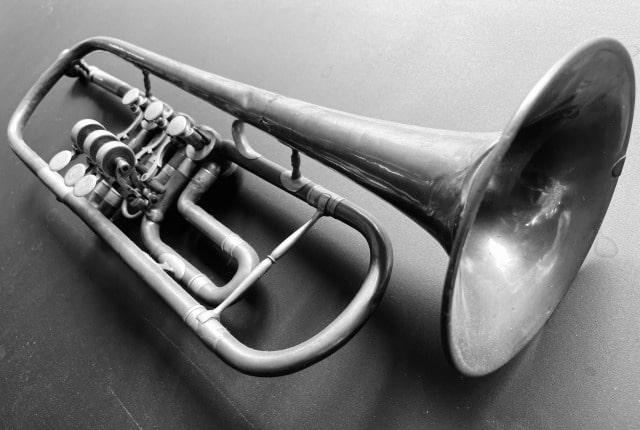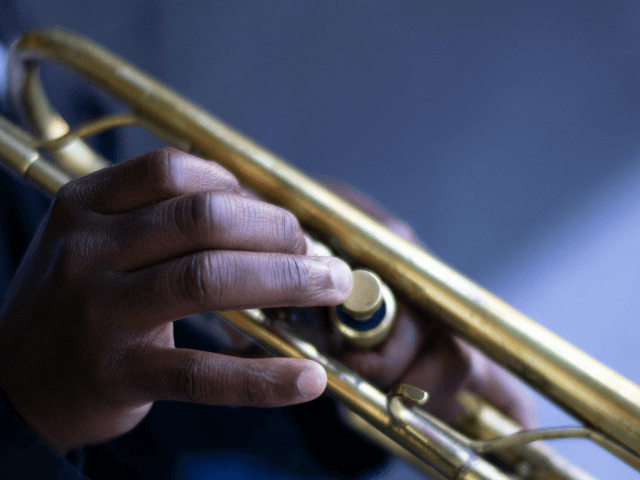Tuning your instrument is important in order to get the best and most expressive play. A trumpet metronome and tuner are great tools to help beginners get the right amount of tuning into their trumpet, but there are also many benefits for those who have been playing the trumpet for years.
This article has put together a few of the reasons why it is a good idea for both professional and beginner trumpet players should invest in a good quality trumpet metronome and tuner. There are a few different kinds of trumpet metronome and tuner options available to trumpet players, which we will briefly overview at the end of this article.
What does a tuner do?
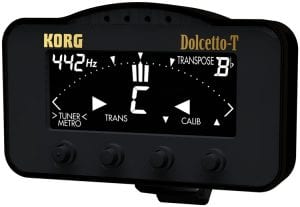
A tuner will help you to adjust the pitch of your instrument, no matter what the instrument is, so that you can play in tune and create the best sound with your instrument. Tuners are also important to help beginners learn what the pitch of their instrument should sound like, so that they can recognize when their instrument needs to be tuned, making the process a lot faster the more that you practice.
There are many different types of tuners, and there are even some great tuning apps to help you get the right tone and pitch to your trumpet.
Looking for a teacher?
Want to get lessons at the comfort of your own home? Check out the course Learn to Play the Trumpet: Beginner to Pro Made the Easy Way* on Udemy! (See their full trumpet course line-up here*!)
Why do I need to tune my trumpet?
Tuning any instrument is important to keep it working correctly and producing the best sound. If you leave your trumpet out of tune, or even out by a few steps, then the song you play will sound completely different to what it is supposed to, and will most likely sound quite bad. Tuning keeps each note within the proper range and tone for the best and most expressive play. Keeping your instrument tuned is massively important for beginners, as this will keep you playing the best sounds, and getting the most from your practice sessions, but it is also important for professional player in order to provide the best performance.
How often do I need to tune my trumpet?
There is no set routine for tuning any instrument. Most professional trumpet players will be able to hear when something is off-key as they begin to practice, and almost all professional trumpet players will tune their instrument before an actual performance.
For a beginner, it is recommended that you check the tuning of your instrument before each practice session, so that you can begin to identify when the instrument is out of tune, and when it isn’t. Once you have gathered a bit more experience with the sound of your trumpet, you will be able to notice the sound of your instrument being out of tune and you can tune it only when necessary.
Why do instruments go out of tune?
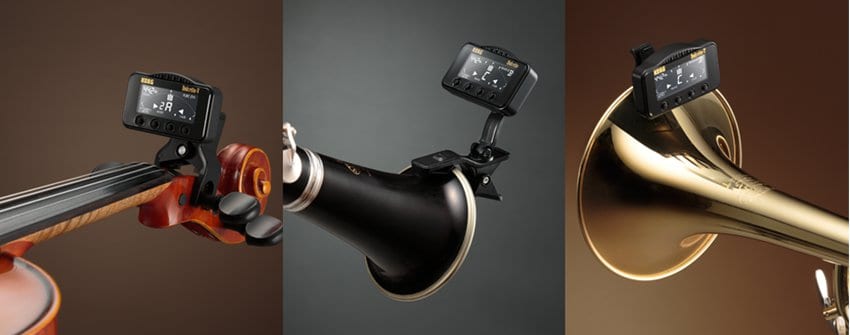
Instruments go out of tune for a few different reasons. Some can be damaged, and this can change or move the tuning key out of place, causing the instrument’s tone to change. Another reason that instruments can go out of tune is age, and this can warp the parts of the instruments, which then need repairing.
More commonly, changes in temperature and humidity can cause parts of the instrument to change in shape and shift; alternating the pitch of the sound the instrument produces. This is easily fixed by using a tuner and moving the parts back into the correct place.
How do you tune a trumpet?
There are a few different tools to tune a trumpet, but to actually change the sound and pitch of the note, it is as simple as moving the tuning slide as you play a note or into a tuner.
What kinds of tuners are available?
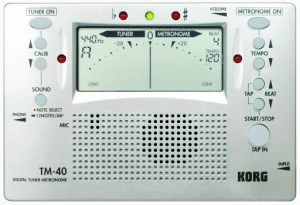
There are three main tuning methods that can be used for a variety of different instruments, including trumpets.
1. An Electronic Tuner
This is the most popular method among musicians, and is probably the best option for beginners. You can either clip the tuner onto the instrument (like the Snark SN-8*) or lie it down on a surface (like the KLIQ Metro Pitch*), and the tuner will react to the vibrations that the instrument creates, showing what note is being played, or how close to the note is being played. This is the easiest way of tuning, making it perfect for a beginner.
2. A Tuning Fork
A tuning fork* is a specially designed metal fork that vibrates when struck, emitting a tone or note. Both professional player and beginners can use this, as it stretches the player’s ability to tune by ear and recognize the correct sound. Get one of these and stick them in your instrument bag, and you’ll always be ready to tune, no batteries required.
3. A Piano
Similar to the tuning fork, this method works by tuning the instrument by ear. This is a popular and common method for musicians, especially those who work in an orchestral band, as each player will help another to tune their instrument before playing.
4. An App
Since nowadays everyone has a smartphone, you can also install an app on your phone that plays any desired note at the press of a button. It’s therefore similar to the piano method or the tuning fork. If you have trouble telling accurately whether or not your instrument is in tune, get an electronic tuner. It will indicate the note you’re playing precisely and they’re already available for around $20, so won’t break the bank.
Why do beginners need a tuner?
Tuners are important for beginners to help them acknowledge the correct sound and pitch of their instrument. They help the player create the best sound by helping them to properly tune the instrument. This is important so that the player can get used to their instrument playing the correct sounds and notes, as this will help the beginner trumpet player get the most out of their practice sessions.
So why do professionals need a tuner?
Professional players also massively benefit from tuners, as they also need to keep their instruments in tune, and in the best condition for performances. If their trumpet is regularly out of tune before each session, then the player will be able to diagnose when there may be an issue with where they are storing the instrument, or if their instrument needs to go in for a repair.
Tuners are one of the best ways to keep your instrument in check, and get the most out of your practices and performances, but they also help you note if there is an issue with your trumpet that could need repairing. We hope that this article has helped you understand the massive benefits of tuners to both the professional and the beginner player.
TrumpetHub.com is a participant of the Amazon Services LLC Associates Program, an affiliate advertising program. Links marked with an asterisk (*) are affiliate links. If you buy a product through an affiliate link, we will get a small commission without extra cost to you. This helps us earn an income off the free content we provide to you. Thank you for your support!

